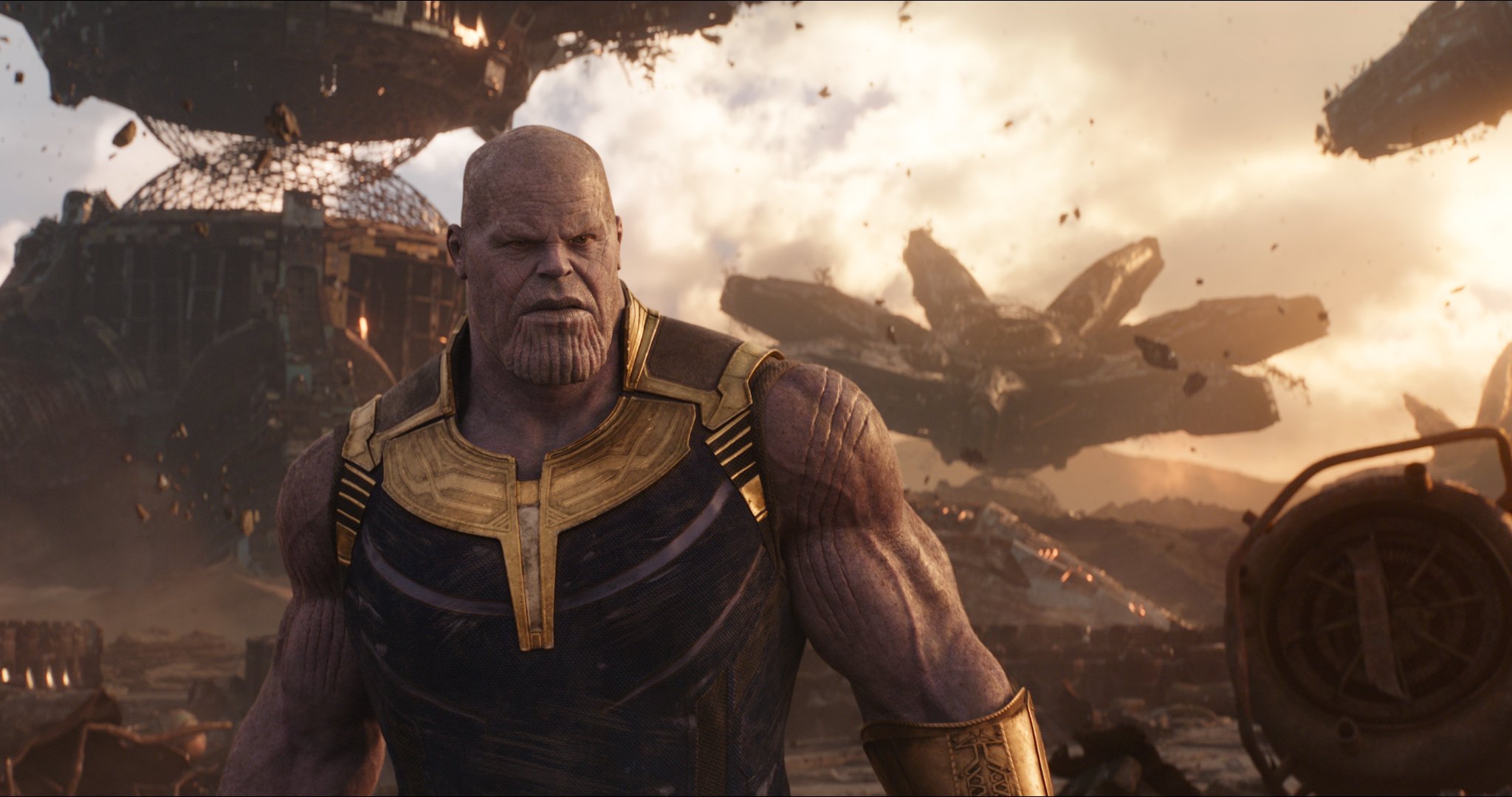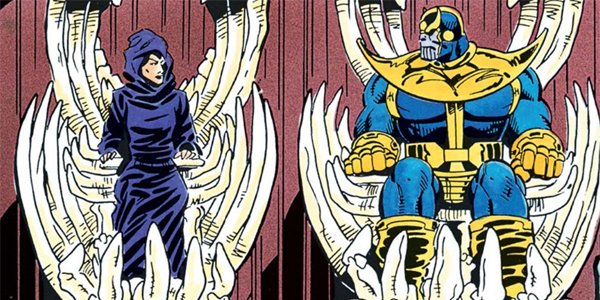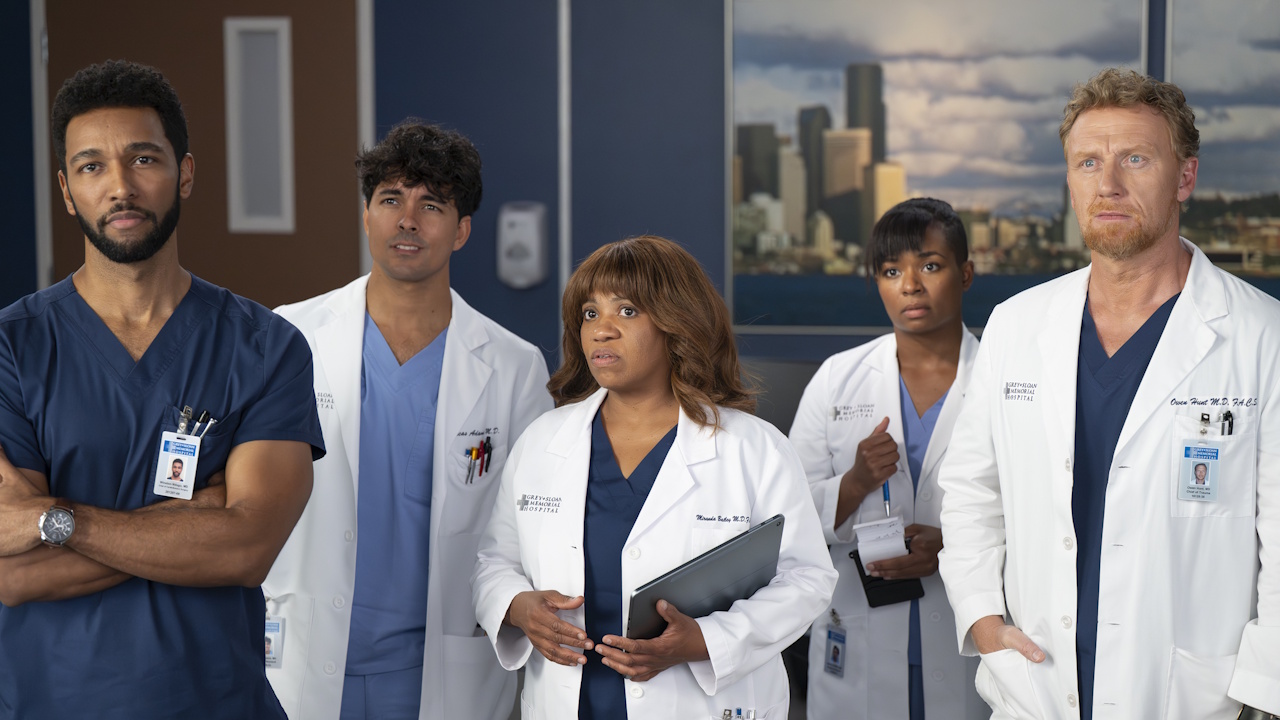Was Death Ever A Character In Avengers: Infinity War? The Russos Explain

Your Daily Blend of Entertainment News
You are now subscribed
Your newsletter sign-up was successful

There are many elements of Avengers: Infinity War that are taken straight from the pages of Marvel Comics, but one big change made by the film is in regards to Thanos' motivation. While the movie has him wanting to kill half of living entities in hopes of balancing the universe, the source material has him trying to win the love of Mistress Death (a physical manifestation). Fans speculated for years about this obsessive love being a part of the movie, but recently directors Joe and Anthony Russo explained to me why she was never really involved. Said Joe Russo,
It's our job to make these characters work in the Marvel Cinematic Universe. Death is not a preexisting character. We have two-and-a-half hours with 23 heroes; there's no room to come in and introduce some character that the audience has no emotional connection to in a finale, in a movie that spans 10 years. But then we have all this other storytelling to deal with.
Prior to the release of Avengers: Infinity War, I had the chance to sit down with the Russos at the Los Angeles press day for the Marvel Studios film, and it was during our conversation that I inquired about Mistress Death (a.k.a. simply Death). Confirming that she wasn't in the blockbuster, Joe Russo first explained that there simply wasn't the room necessary in the film to include a brand new character who is that significant. Instead, the focus was kept primarily on the heroes and villains we know, and that allowed them to better navigate the story.
It's worth mentioning that the film does include a few new characters, including the four members of the Black Order -- but it's true that it also doesn't spend a ton of time explaining who they are (something that would be necessary for the introduction of Death, given her aforementioned role in Thanos' motivations). Instead, as suggested, Avengers: Infinity War builds on pre-existing real estate to provide deeper emotional connections for the Mad Titan as a character, and puts much more focus on the Children of Thanos we already know because of the Guardians of the Galaxy movies. Following up what his brother had to say, Anthony Russo told me,
He has a depth of experience with Gamora and Nebula, We run at the character relationships, especially the pre-existing character relationships when you're at the end of the book. You don't introduce new characters; you pay off the relationships that you've been building on through the course of the narrative. So yeah, that's basically what we ran at with Thanos.
To provide a bit more background, in the comics Thanos is in love with Death, and because living souls have grown to outnumber the dead, it is actually her desire to see half of life in the universe killed. Regularly shunned by Death, who isn't even willing to speak to him, Thanos realizes he can help her complete her goal by collecting all of the Infinity Stones in the Infinity Gauntlet. In a twist of irony, however, doing so and becoming a god leads Death to see Thanos as her superior, and she is left still unwilling to speak to him (which leads the Mad Titan down a path of petulance and toxic masculinity). With so much else going on in Avengers: Infinity War, this would have been a sincere challenge to directly adapt, and the version on screen is not only a well-streamlined take on the narrative, but arguably a more effective one.
Joe Russo returned to the subject of emotional connection to the characters later in the interview, and used it to make an interesting point about a defined pattern in their Marvel movies. As he explained, all of their antagonists have strong connections to the heroes, because that's what makes the material rich:
It's interesting because as Anthony was saying, I think the most important part of the relationships that feed [Thanos] as a villain are the personal ones - the ones that the audience has seen for the last 10 years. So, you know, Winter Soldier, we felt when we first read that script, when we were talking to Marvel about doing the movie, we said, 'You have the most amazing villain relationship here because it's the hero's best friend, unbeknownst to him, and there's so much emotional baggage there.' We always try to go towards emotional baggage. That's why Zemo has a connection to the Avengers in Civil War. He feels that they are responsible for the death of his family. It creates a personal relationship. It's not some random power grab or just a maniacal villain.
After years of waiting, fans can now experience Avengers: Infinity War for themselves, as it is in theaters just about everywhere (and establishing itself as one of the biggest blockbusters of all time). Stay tuned here on CinemaBlend for a whole lot more of our Marvel coverage, and take a look at our 2018 release schedule to see what's ahead!
Your Daily Blend of Entertainment News

Eric Eisenberg is the Assistant Managing Editor at CinemaBlend. After graduating Boston University and earning a bachelor’s degree in journalism, he took a part-time job as a staff writer for CinemaBlend, and after six months was offered the opportunity to move to Los Angeles and take on a newly created West Coast Editor position. Over a decade later, he's continuing to advance his interests and expertise. In addition to conducting filmmaker interviews and contributing to the news and feature content of the site, Eric also oversees the Movie Reviews section, writes the the weekend box office report (published Sundays), and is the site's resident Stephen King expert. He has two King-related columns.
